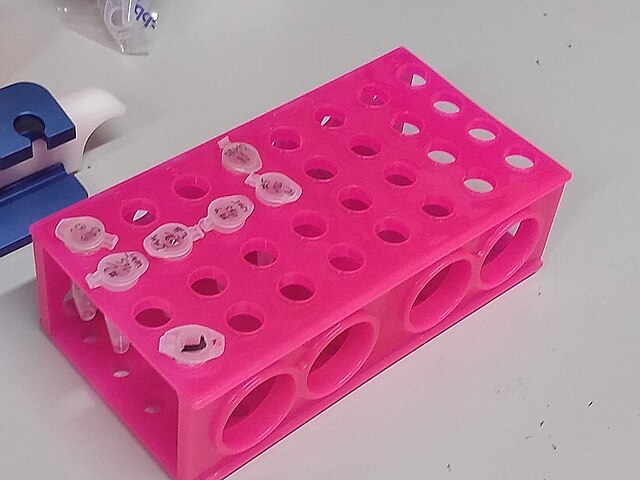Filtration with vacuum pump
ID: oxford-nanopore-river-bacteria/filtration-with-vacuum-pump
How to use an Oxford Nanopore MinION to extract DNA from river water and determine which bacteria live in it Filtration with vacuum pump by  Ciro Santilli 40 Updated 2025-07-16
Ciro Santilli 40 Updated 2025-07-16
The first thing we did was to filter the water samples with a membrane filter that is so fine that not even bacteria can pass through, but water can.
Therefore, after filtration, we would have all particles such as bacteria and larger dirt pieces in the filter.
From the 1 liter in each bottle, we only used 400 ml because previous experiments showed that filtering the remaining 600 ml is very time consuming because the membrane filter gets clogged up.
Therefore, the filtration step allows us to reduce those 400 ml volumes to more manageable Eppendorf tube volumes: Figure 1. "An Eppendorf tube". Reagents are expensive, and lab bench centrifuges are small!
Labelled Eppendorf tubes on a rack
. Source. Since the filter is so fine, filtering by gravity alone would take forever, and so we used a vacuum pump to speed thing up!
For that we used:
Peeling the vacuum pump filter protection peel before usage
. Source. Placing the vacuum pump filter
. Source. New to topics? Read the docs here!



